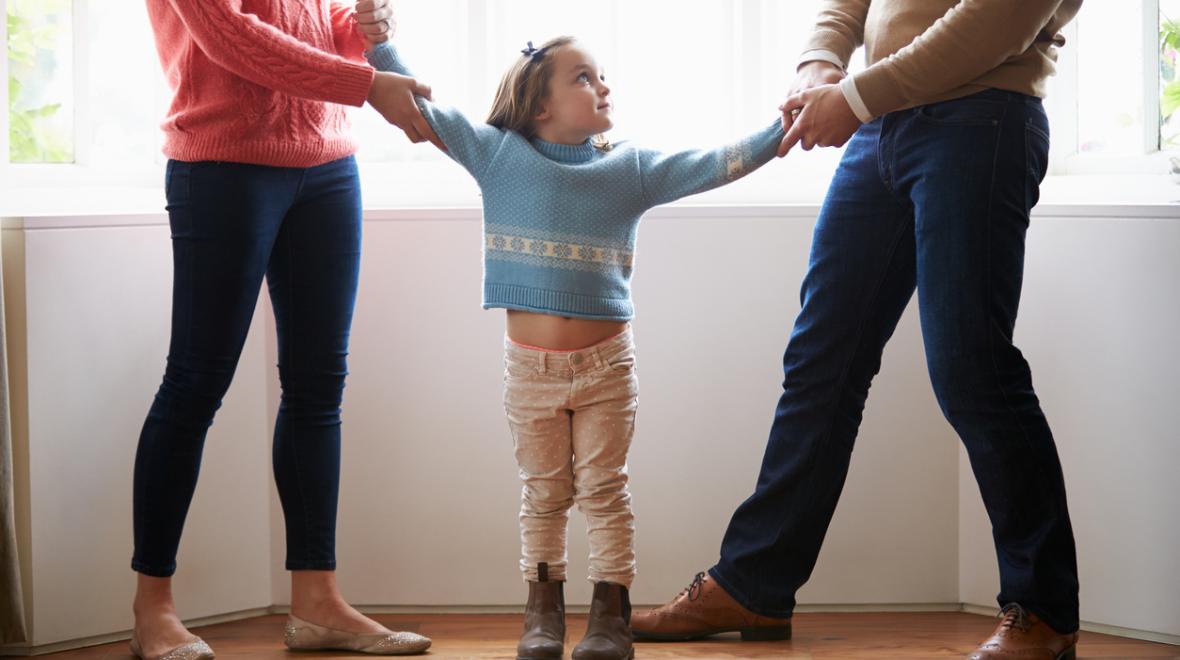
I can’t even begin to count how many times I’ve been told I’m "lucky" for sharing custody of my son with my ex. There’s a happily deluded idea currently floating around the playground circle that co-parenting is this amazing, progressive method of child rearing that allows each parent the space and time to pursue their own interests and career half the week, while effortlessly switching back into parent mode the other 50 percent of the time.
The reality is that co-parenting and shared custody, particularly with someone you no longer have romantic feelings for, is a messy and complicated business that takes time, commitment and many, many failures along the way. Adjusting to a new reality forces parents to grapple with emotions that we rarely equate with parenting a healthy child — most notably, grief, sadness and sometimes even trauma.
Very few of us expect that our lives will continue as normal when we have kids. We expect sacrifice. We expect our previously carefree lives to be curbed by bedtimes and curfews, school runs and early starts. When a parent loses both an intimate relationship and the all-consuming reality of caring for a child in their home 24 hours a day, seven days a week, the result can be deeply upsetting and disorienting. In a sense, you’re losing your identity as a parent well before you ever anticipated that would happen.
Jamie Grumet, a 30 year-old mother of two boys she co-parents with her ex-husband, says “my children’s lives went from being fully and entirely immersed with mine to being fragmented. They have experiences and go places with their father that I may never know about. I wouldn’t want to have my children’s experiences solely with me, I understand how unhealthy that is." But she adds that her kids "have a set of friends that I may never meet because they are part of their life with their dad, that I am not not a part of. The brokenness of family is what makes this hardest for me.”
The brokenness of family is what makes this hardest for me
Similarly, Myfanwy Collins, who co-parents a teenager with her ex-husband, talks about the “grieving” she feels when her child is not with her, despite her knowledge that her son needs time with his father as well as her.
“It looks great,” admits Julia Benson, a recently divorced mother with a three year old. “I get date nights. I get to take classes, go to the movies — and, sure, a part of me loves it. But the other part of me sees my mom-friends spending all their time with their kids, and seeing how fast they grow, a little part of me thinks, ‘I’m missing out. I’m only getting half the experience. What if he resents me for not being there like all these other moms? What if it’s not good enough?'”
Matters become even more complicated when you’re co-parenting with someone you simply can’t trust. It happens — and with a court system that's primarily focused on establishing shared custody, many contentious situations are exacerbated. Thrusting two people together who simply shouldn't be making joint decisions about their child’s welfare can be a recipe for disaster.
James* recounts his difficulties sharing custody of his daughter, now a college student, with an ex-wife who had a severe mental illness that went largely unrecognized by the courts.
“There is nothing about co-parenting that benefitted my daughter other than just 'she had her mother in her life rather than totally non-present,'" he says. "She would have been better served if I had just had sole custody. Sometimes sole custody is better.”
James’s case is extreme — ranging from petty micro-aggressions to dangerous behavior that eventually led to social services involvement and the court awarding him full custody — but it kept him in the legal system and dealing with his ex-wife for more than a decade. And even in cases like James's, parents dealing with dysfunctional and even dangerous former partners struggle with the perception that their inability to co-parent is because they're incapable of getting along or putting the kids first.
The permanent grief that a parent may carry with them despite the functional nature of their co-parenting relationship is very different from the unending sense of despair that a parent has when having to co-parent with an intractable and difficult ex-partner who is simply incapable of parenting.
If your parenting reality is blissfully ideal — you’re living the co-parent dream with a supportive ex-partner, or you’re part of a functional two-parent family — thank your lucky stars. But instead of offering unhelpful advice — my favorite is to just "let it go" — listening is the best support you can provide.
* Name has been changed.











